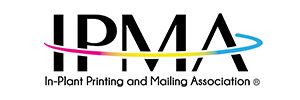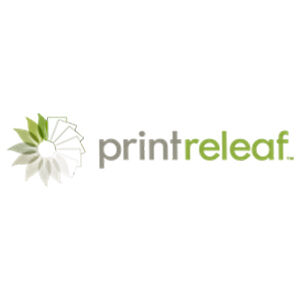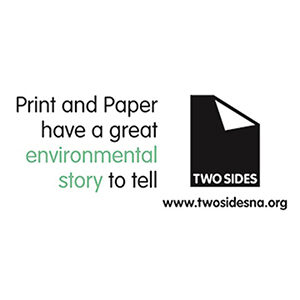Sustainability used to be a buzz word, often confused with recycling, and way too often brushed aside as if it was just a fad. Sustainability is in all parts of our lives and it is more than preserving our natural resources. It is also about improving the quality of life for everyone.
The University of Virginia has a sustainability plan for 2020 – 2030 that has a number of goals to reach by 2030. Printing & Copying Services (PCS) has taken steps toward helping meet those sustainability goals. The two biggest goals being reducing the waste footprint to 30% relative to 2010 levels, and to be carbon neutral by 2030. A big part to reducing our waste footprint is through recycling, which is part of being sustainable. And this is nothing new. We have been recycling paper, carboard, metal press plates and chemistry, and wooden pallets for years. We have expanded the items we recycle over the past couple of years to include plastics, aluminum, glass, toner bottles, and all electronic equipment (copiers, computers, etc.). We work closely with the University’s recycling group on the collection and removal of these items.
Being a production facility, we use a little bit of electricity and helping the university reach its goal of being carbon neutral by 2030 will require some creative thinking, but there were also steps that we could accomplish or put in motion without racking our brain. We partner with vendors who have a sustainability plan. Having partners who also have sustainability goals and initiatives is key in helping to meet our goals. We have partnered with PrintReleaf to make our public copiers paper neutral and we are working to expand this to our entire fleet of over 900 units in the near future. We also look to purchase copier equipment that is Energy Star rated.
Little low-cost changes can make a big difference to the overall goal. We all want our prints or copies as fast as we can get them, but it is important that when the unit is not in use that it go into Sleep Mode and use as little energy as possible until it is called upon to print the next job. Years ago, we combined our two delivery positions into one and developed a delivery route for the driver, who runs the route twice a day, once in the morning and once in the afternoon. We saw an immediate decrease in our fuel cost and the amount of time it took to make deliveries.
A dual win came in our prepress area as we went completely chemistry free. Seventeen years ago, we switched to process free plates and stopped using polyester plates two years ago. Not only did we eliminate the use of harmful chemicals, but we also eliminated using film, which contained silver. Plus we eliminated multiple pieces of equipment required to process plates.
We have made some high-cost, long term investments in improving the efficiency of our main facility to reduce our energy demand and cost. Seven years ago, we updated our production floor lighting to more energy efficient low energy bulbs which required new ballast to be installed to handle the new bulbs, while keeping our 5,000 Kelvin light requirement. In the past year we have replaced both our front office area and our production area HVAC systems, which were less efficient, old, and costly to repair, to more energy efficient units. To reduce the amount of single-use plastic bottles we replaced our aging water fountains with units that can also fill reusable water bottles. Our near future goal involves our small fleet of vehicles. When it comes time to replace them, we will look to electric powered vehicles to get us around.
PCS owns the proud distinction of having built the first LEED Silver certified building here at the University in 2010. We have also been FSC Chain of Custody certified since 2012. We accomplished this through a group certification, which greatly reduced the cost to obtain. It is important that we support paper sources that are maintaining and protecting our forest lands and ecosystems. Even when not producing FSC jobs, we purchase FSC certified paper stocks when available.
Long established habits will need to be broken, but it is important to remember that sustainability is not an all or nothing lifestyle or practice. It is knowing what needs to be done and doing what you can. Doing nothing is not sustainable.


